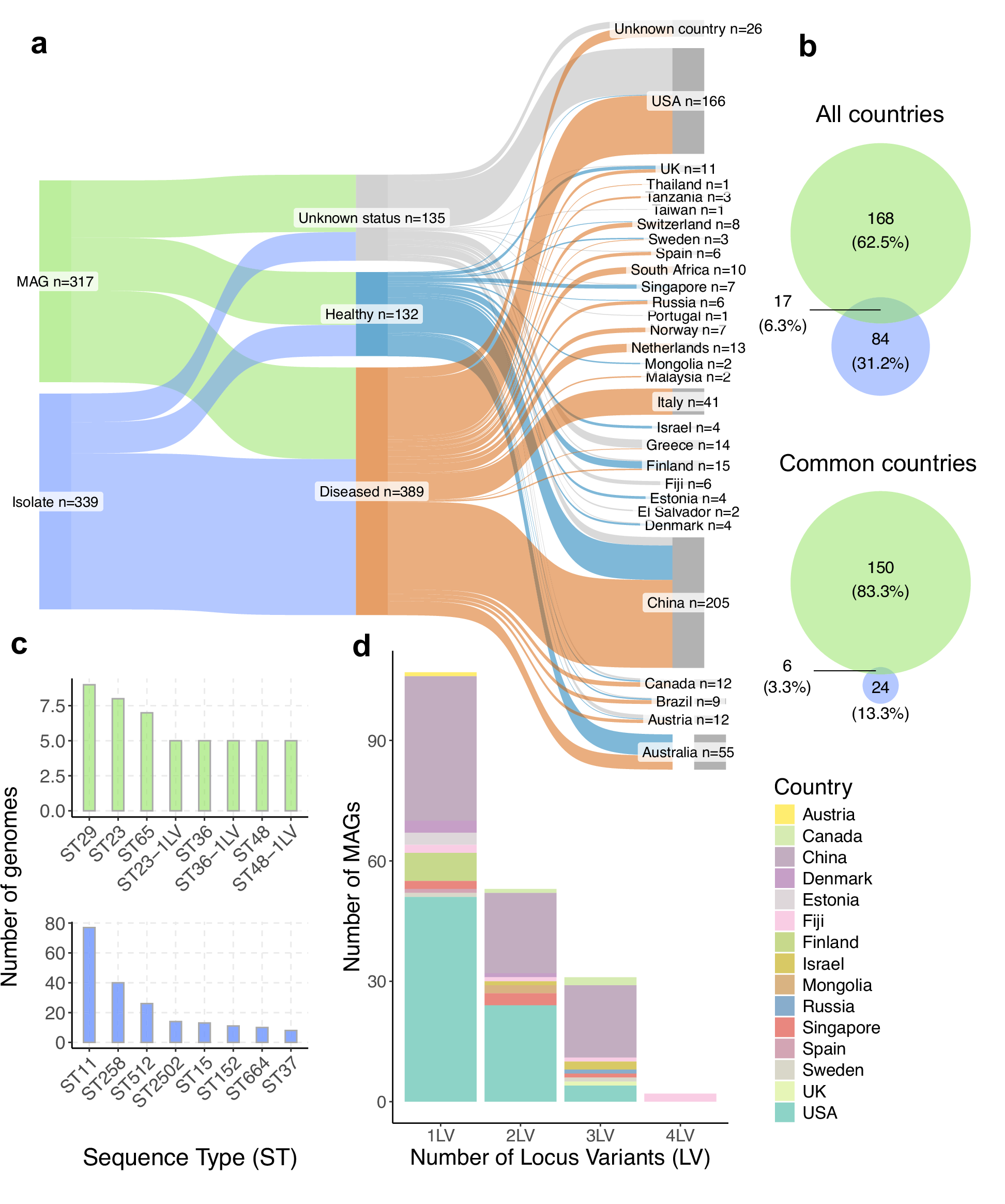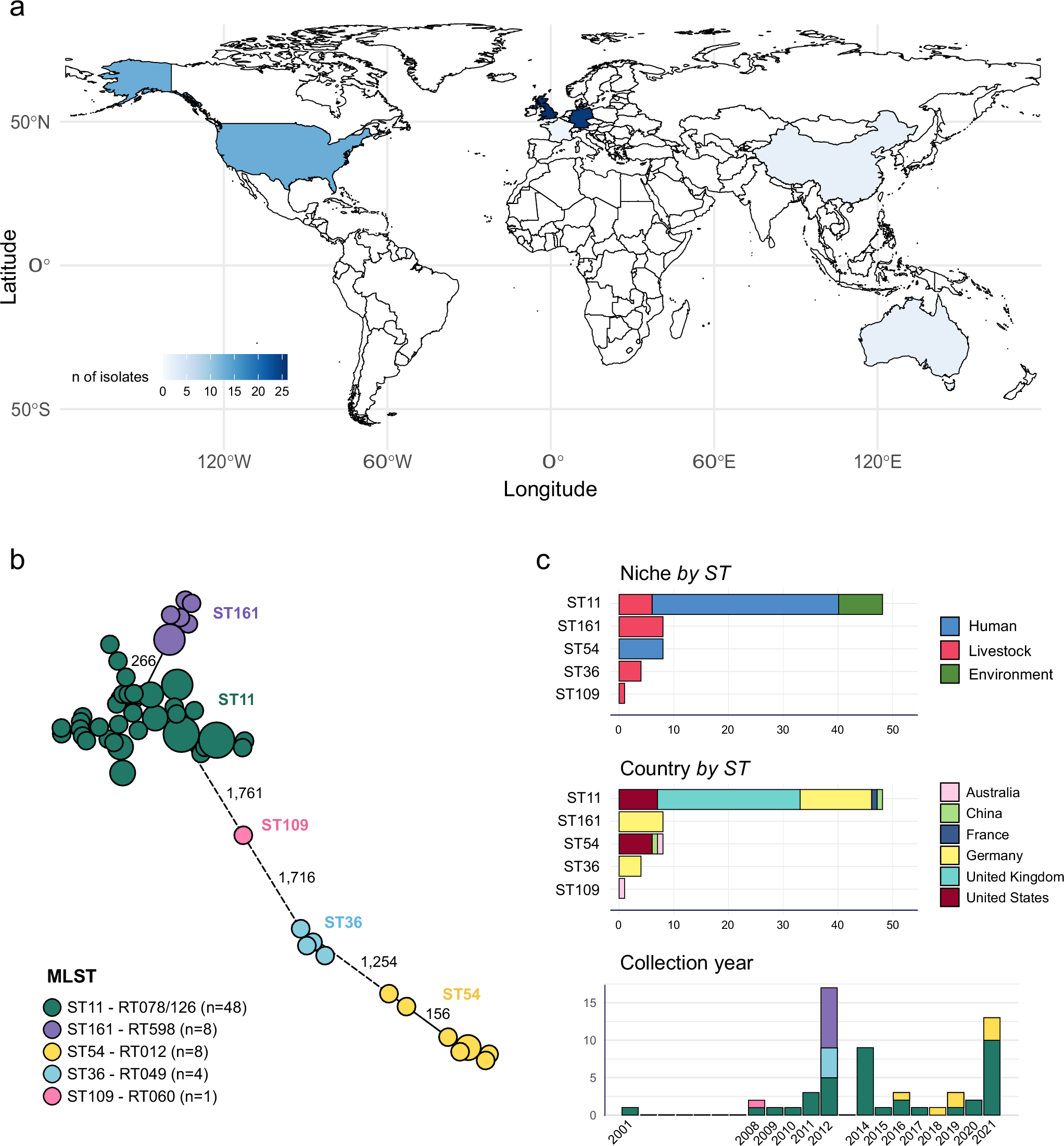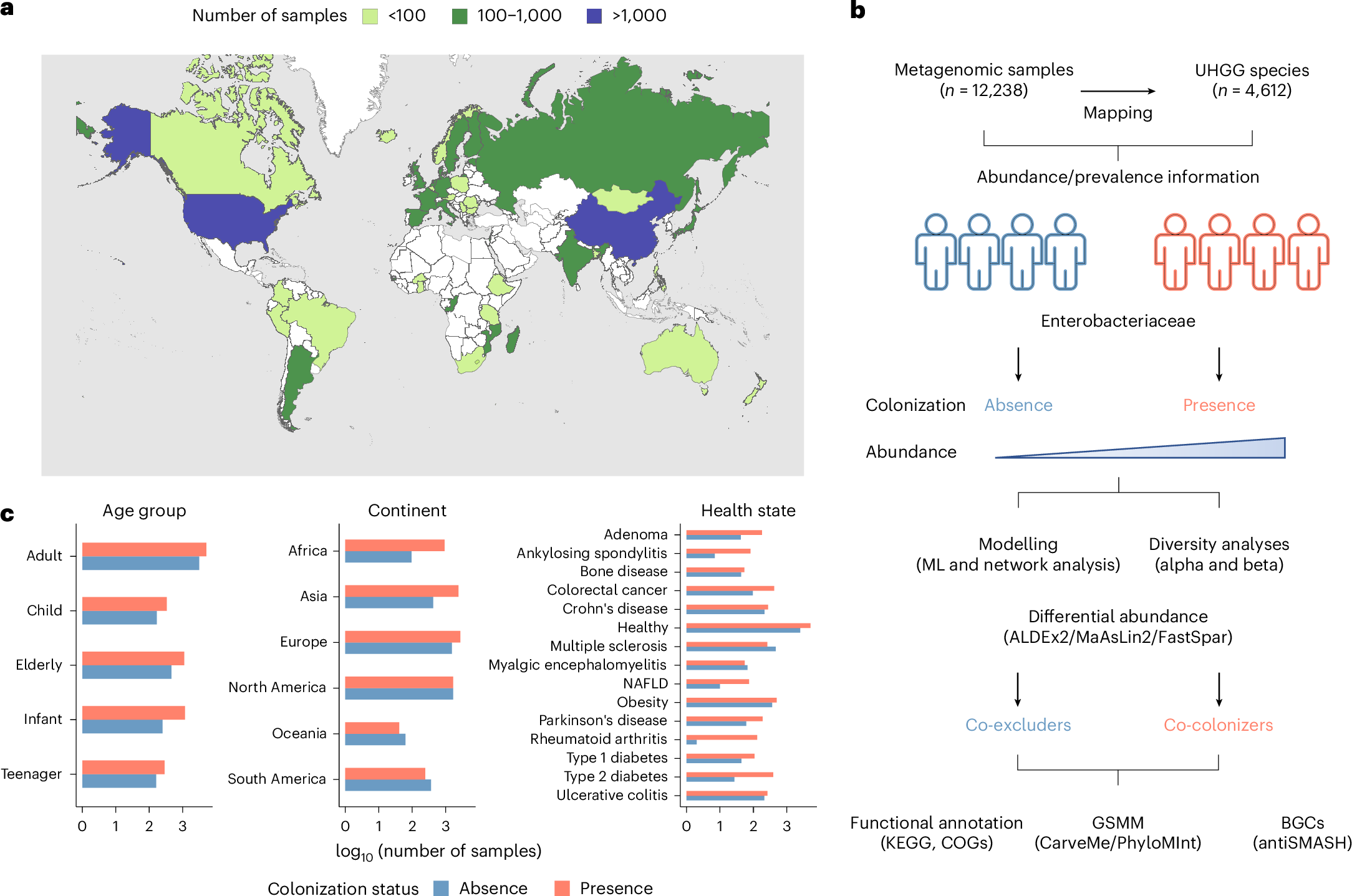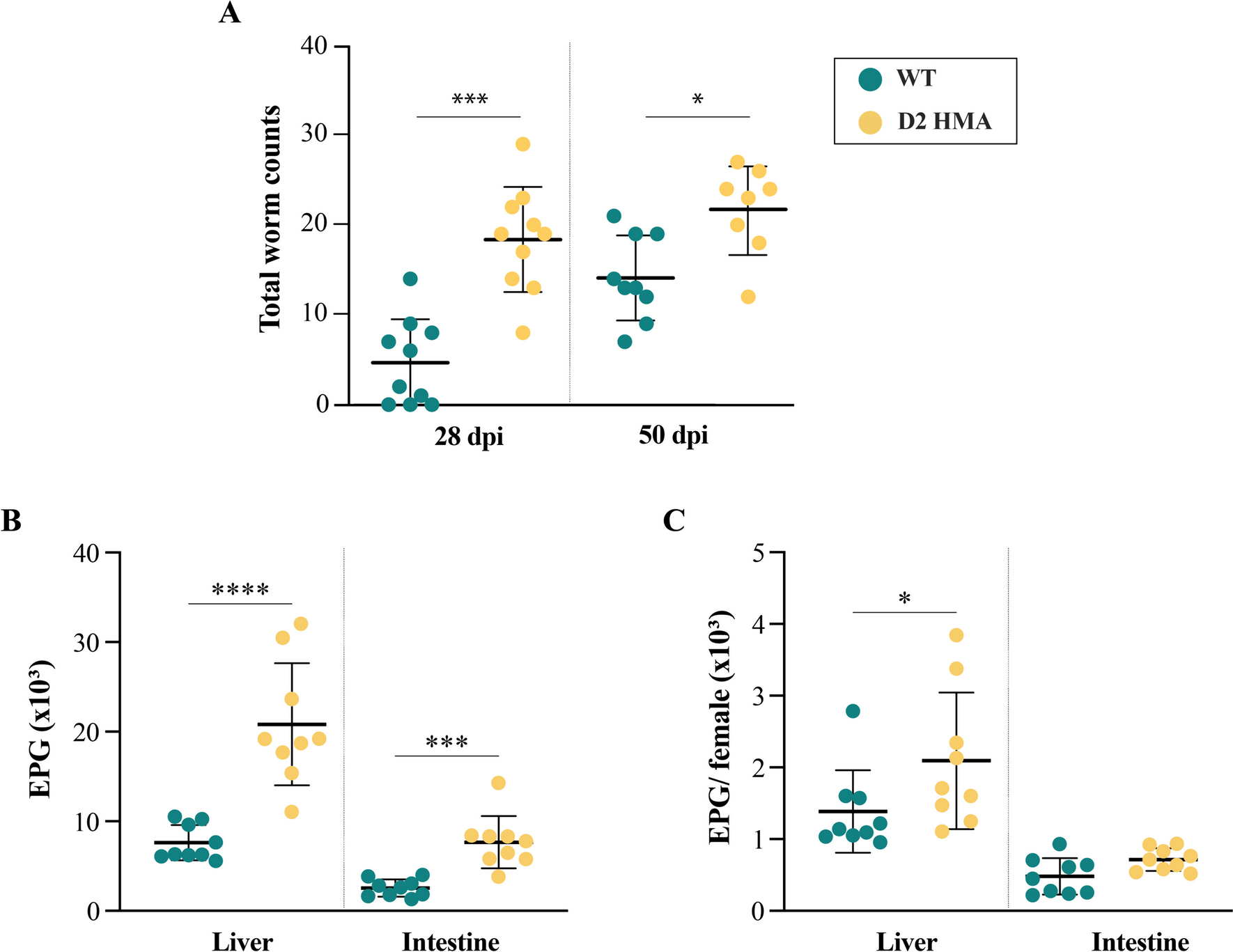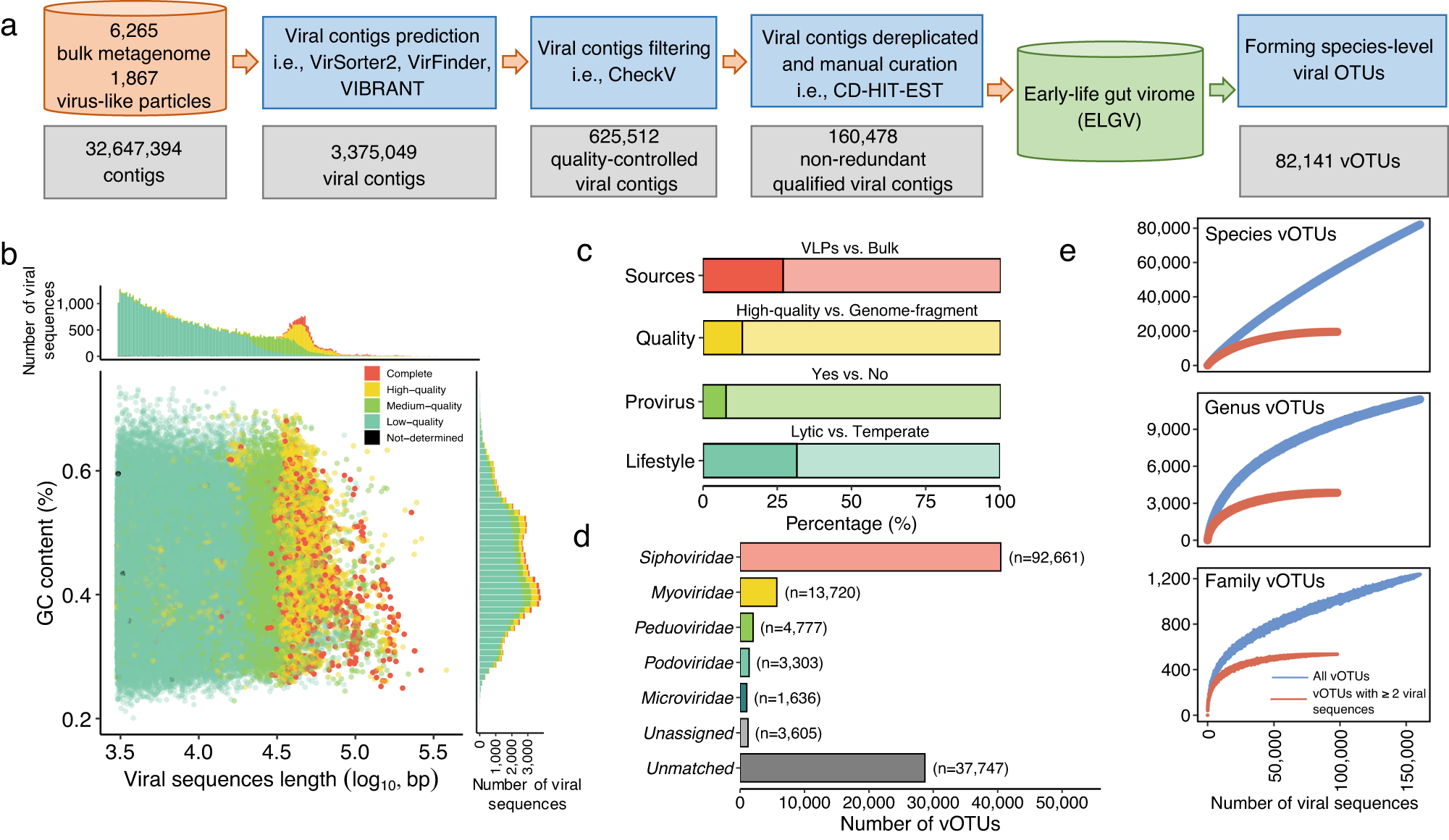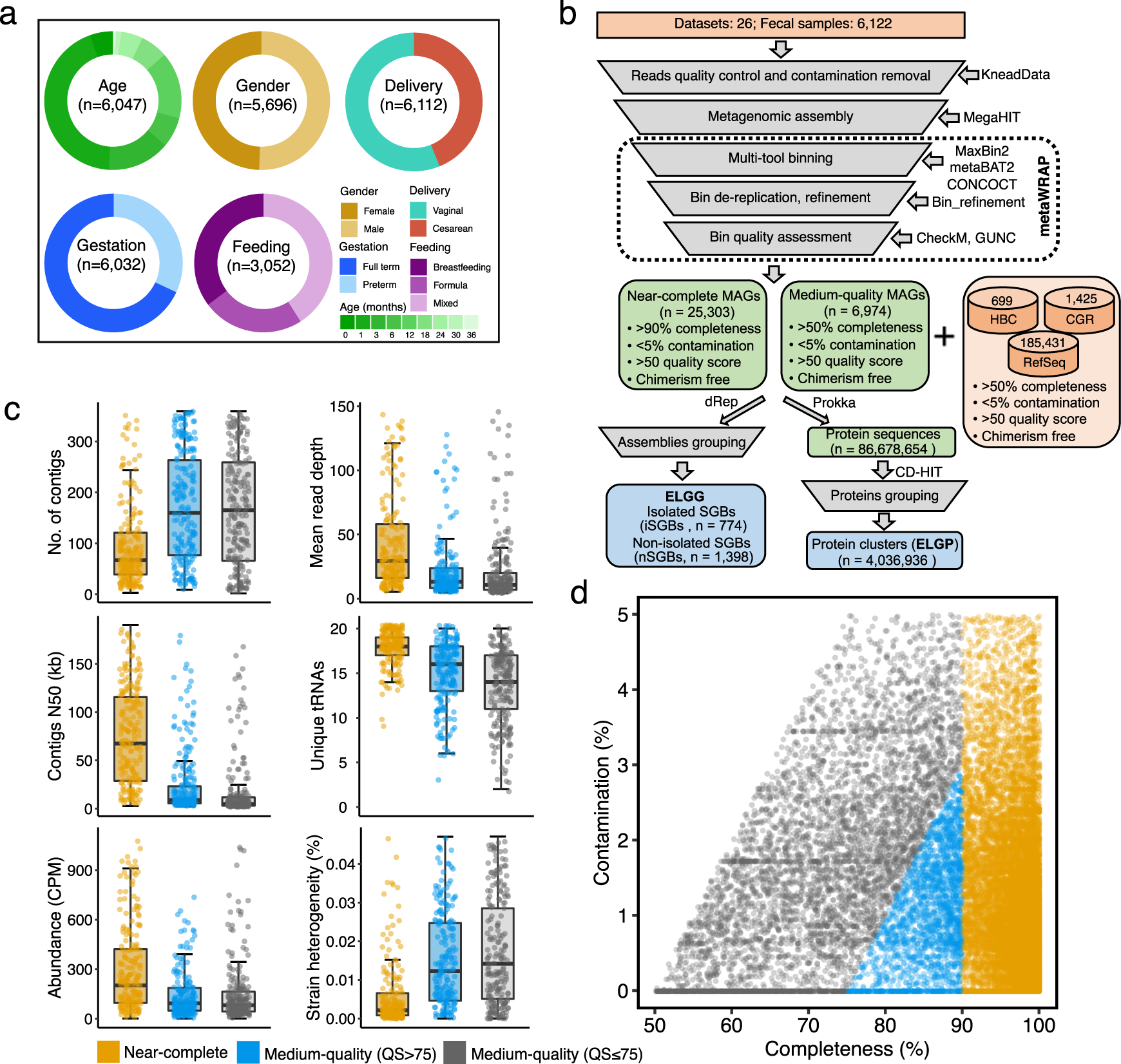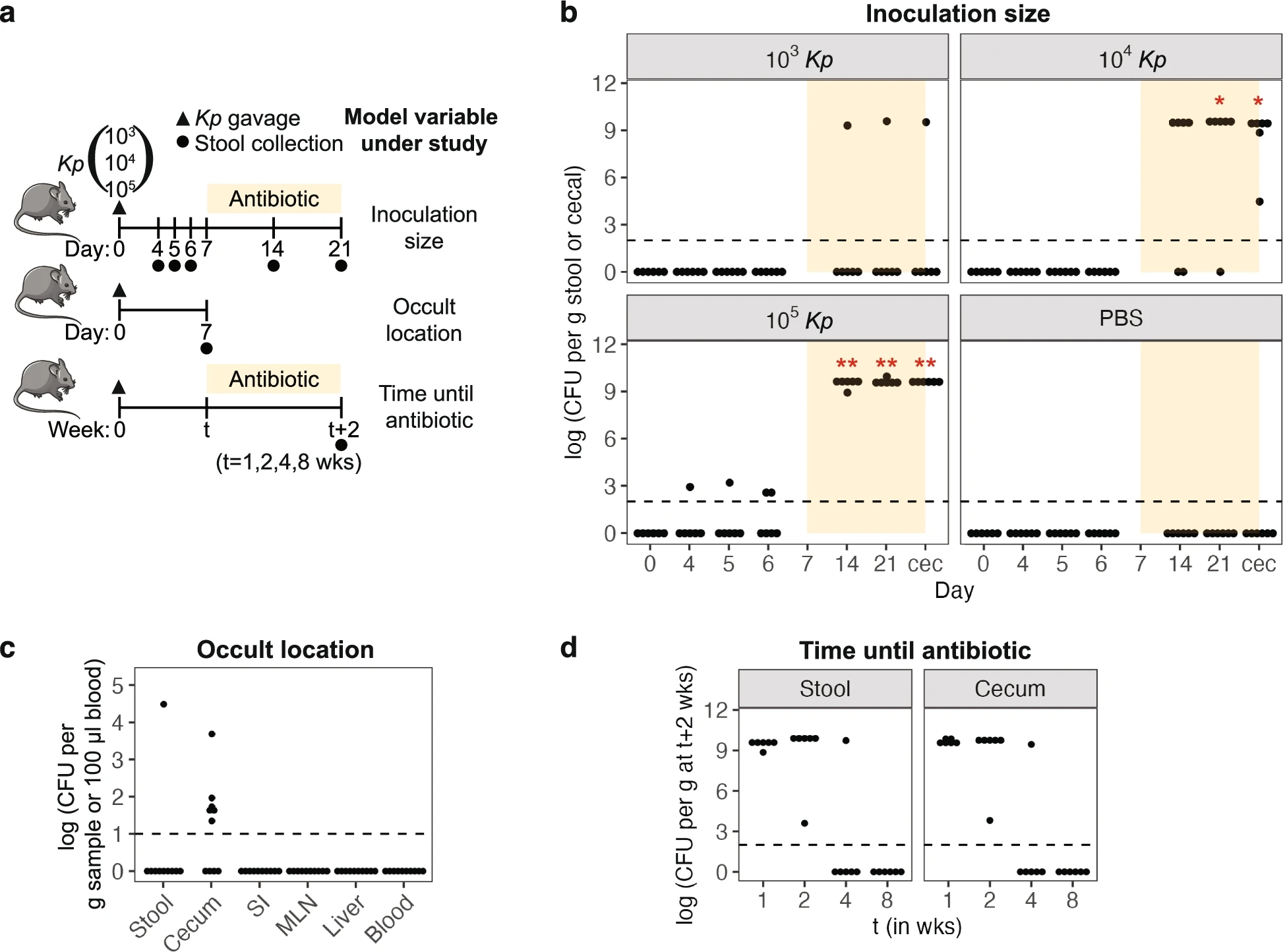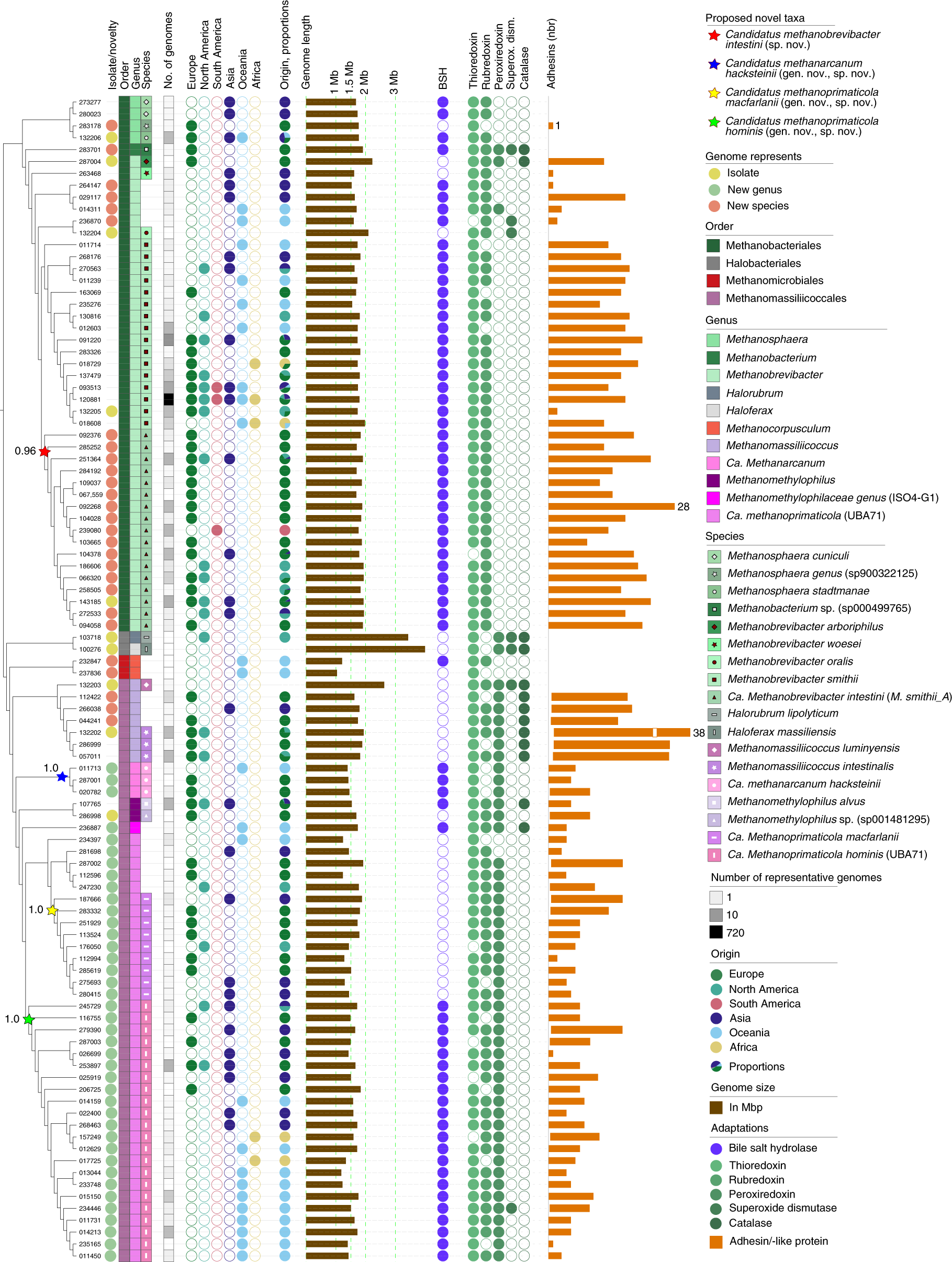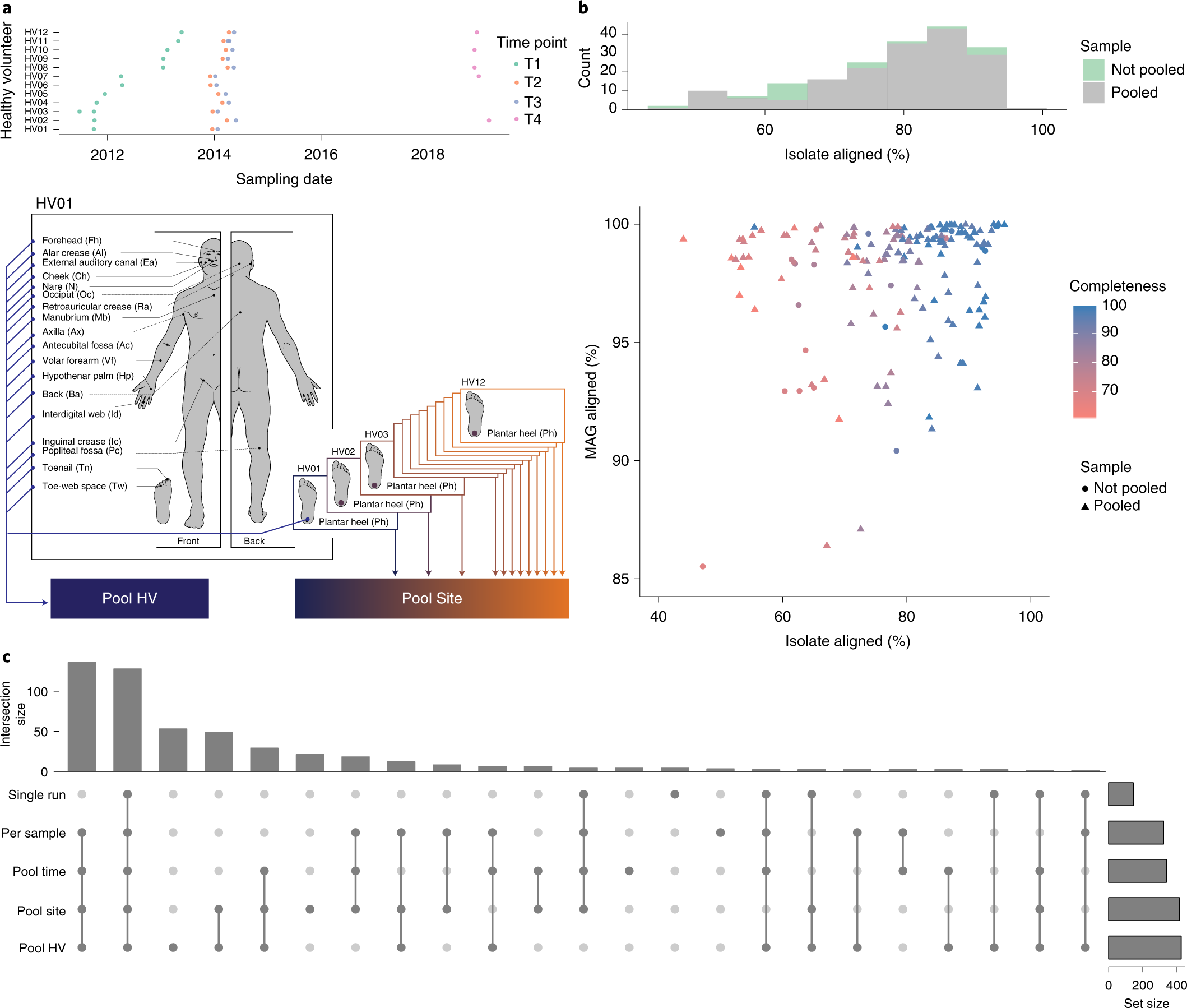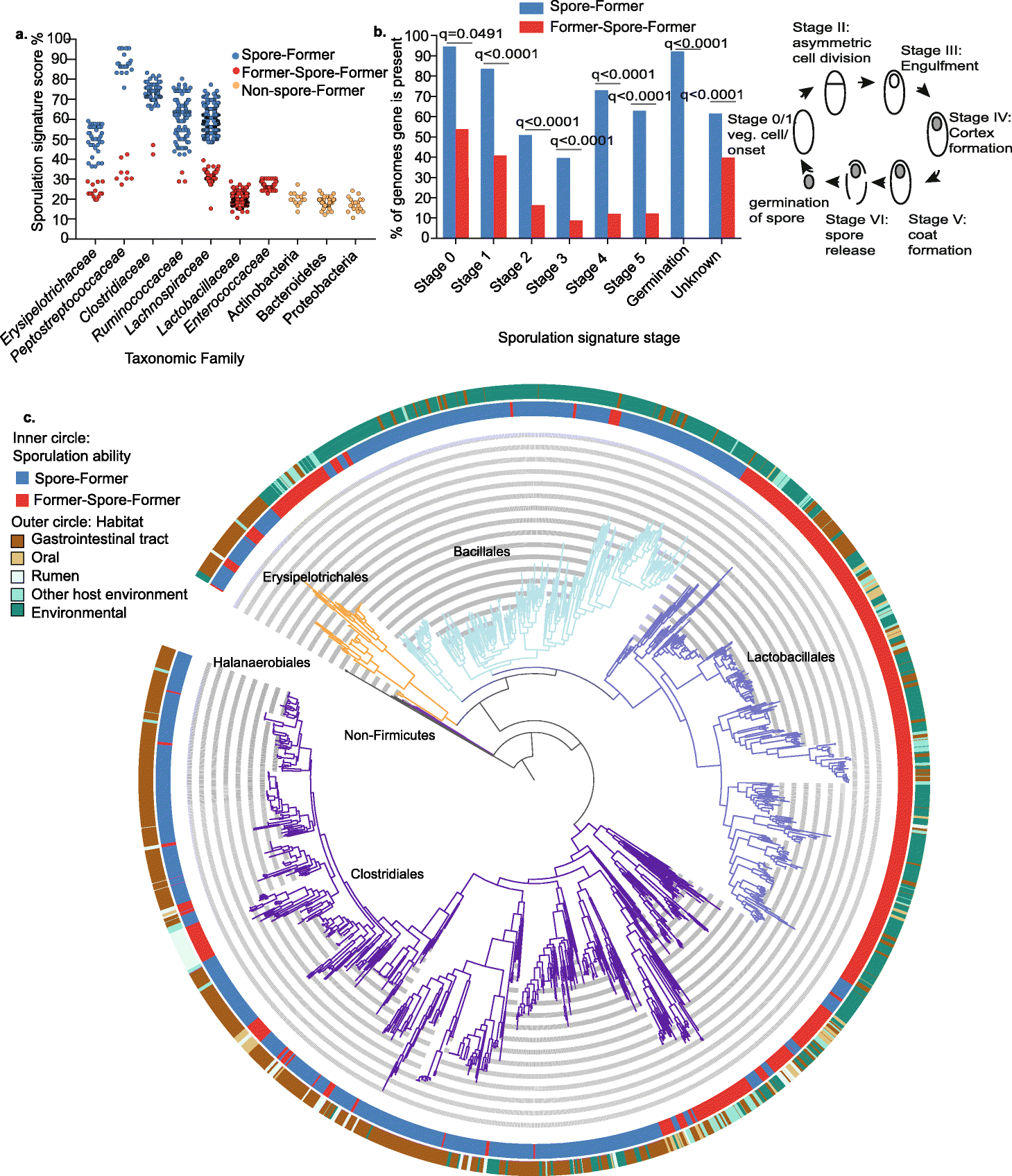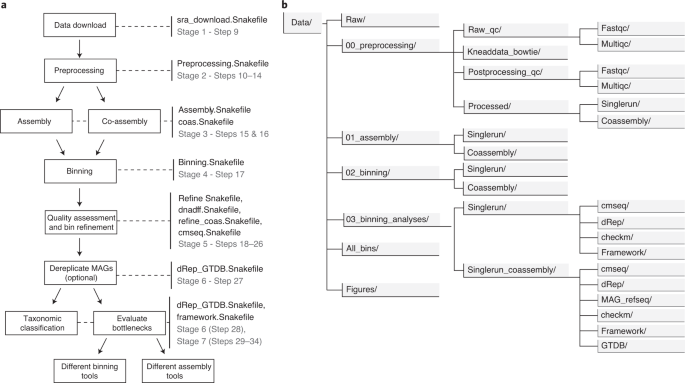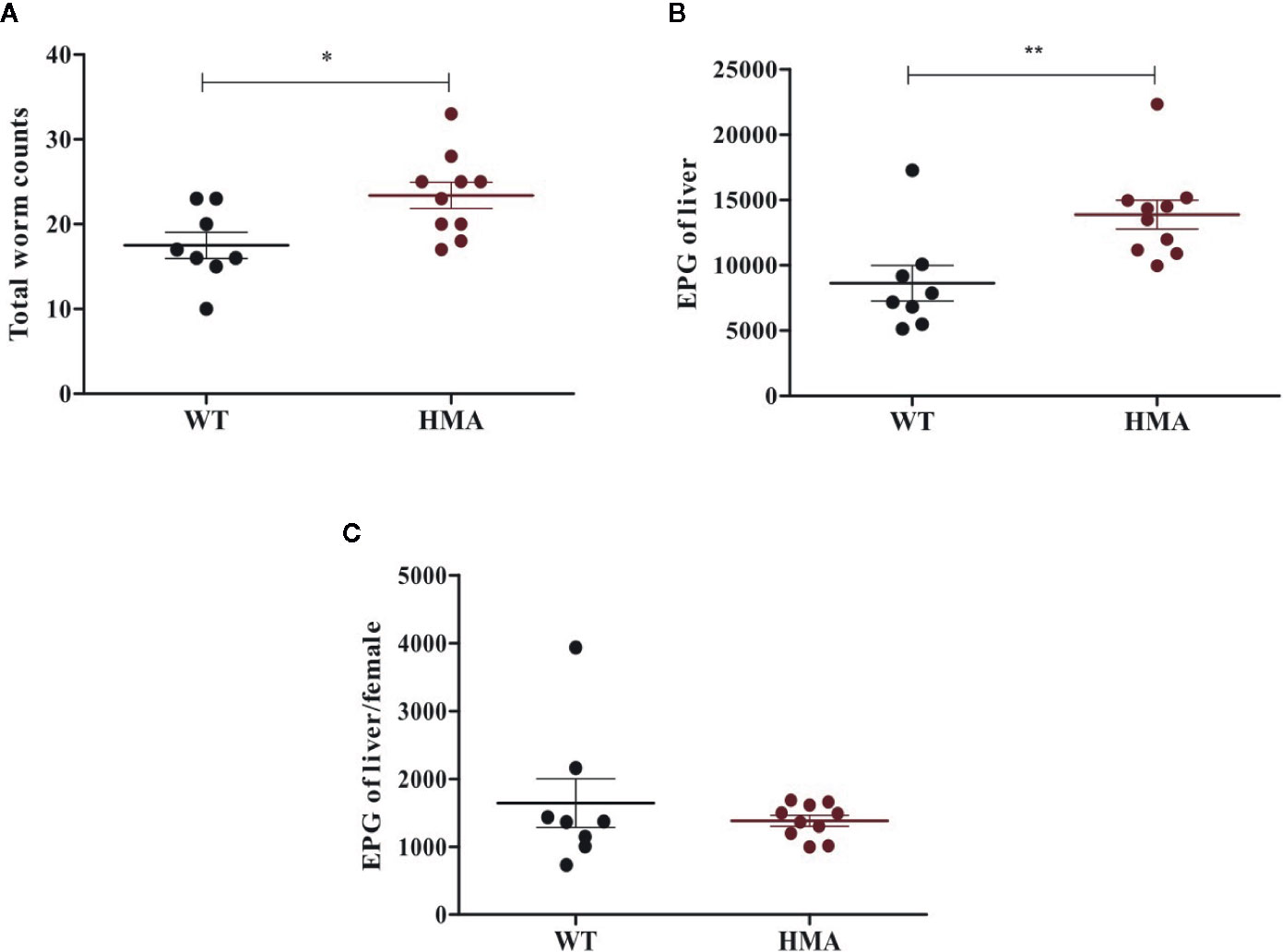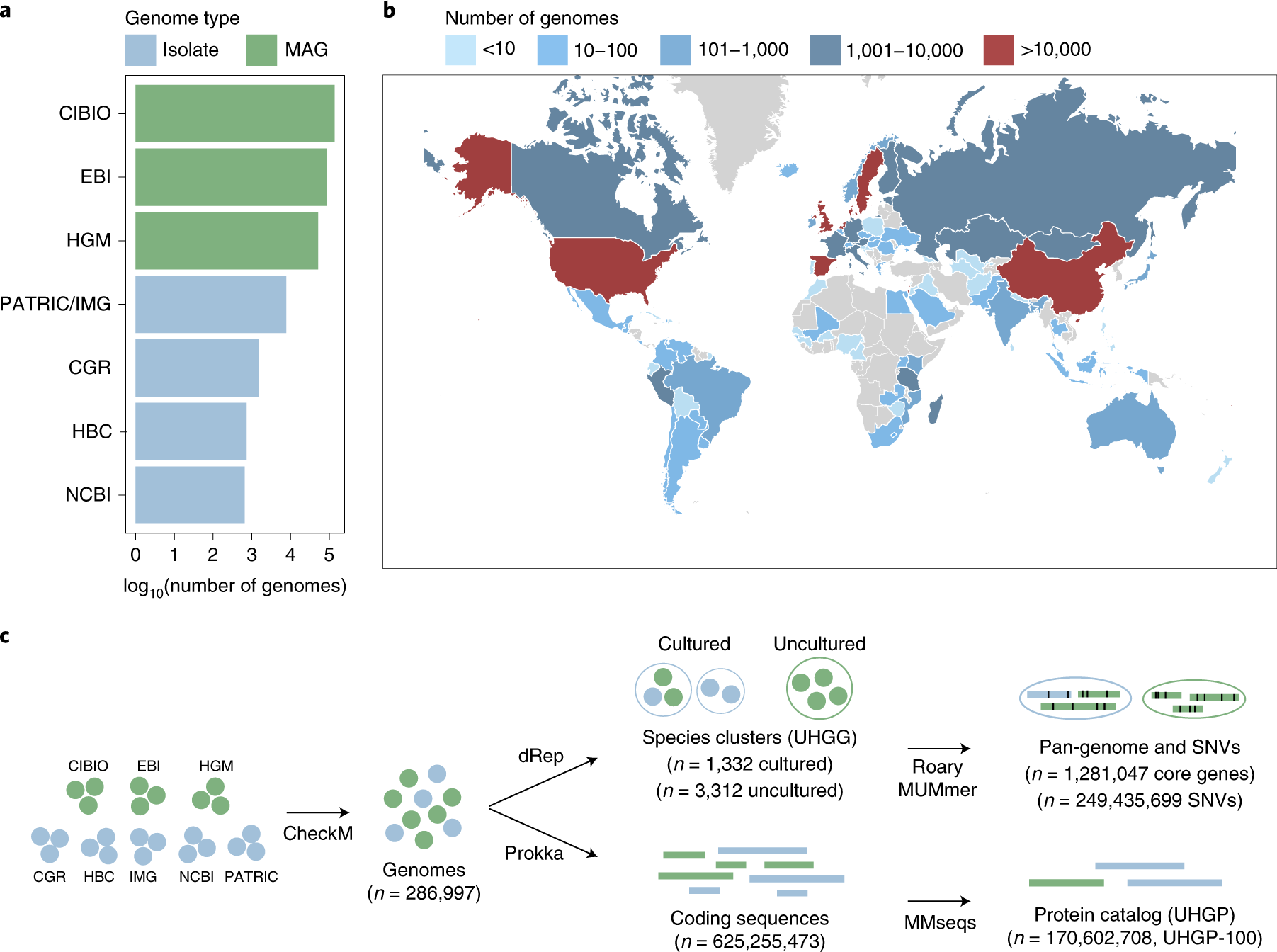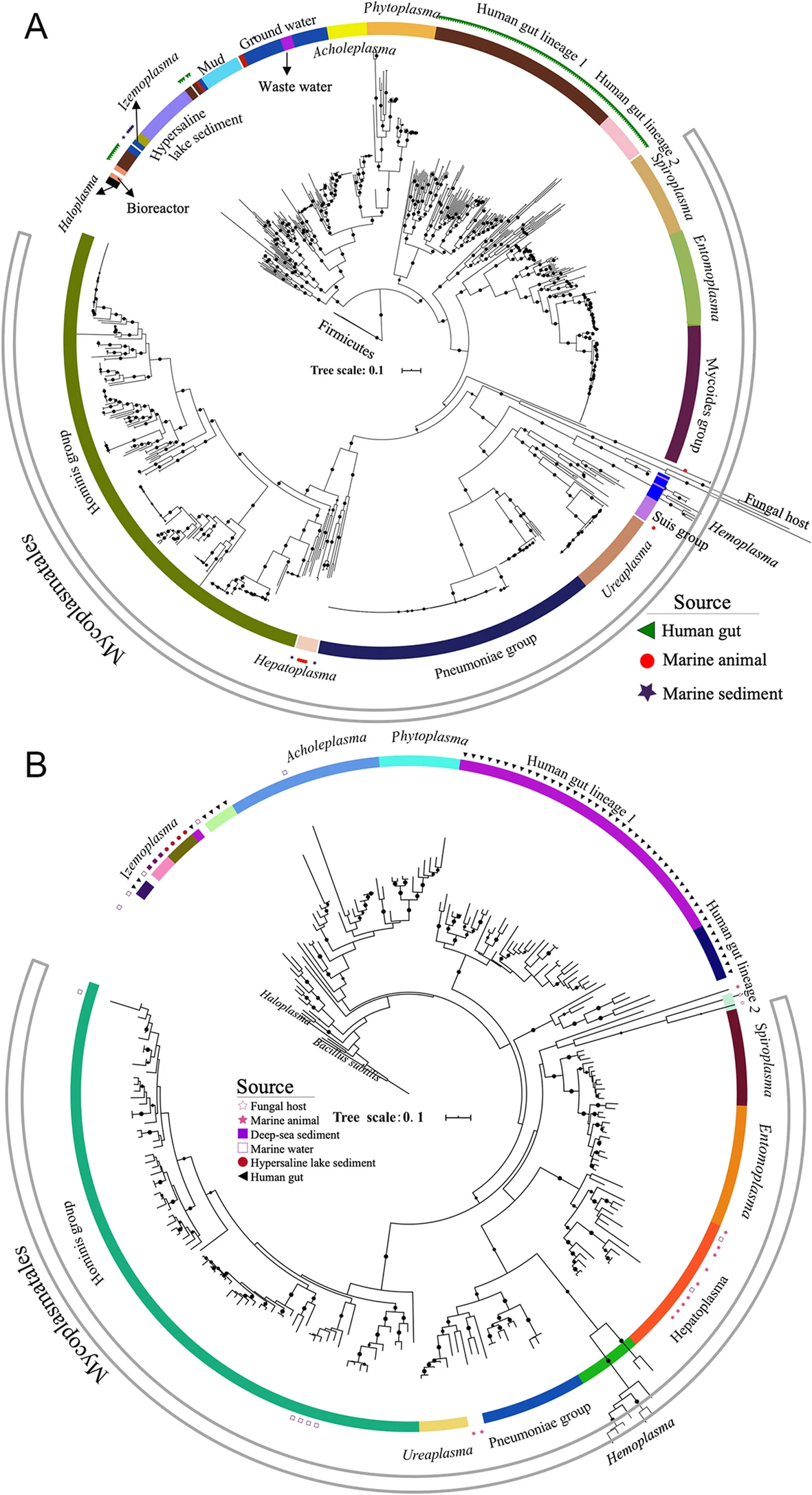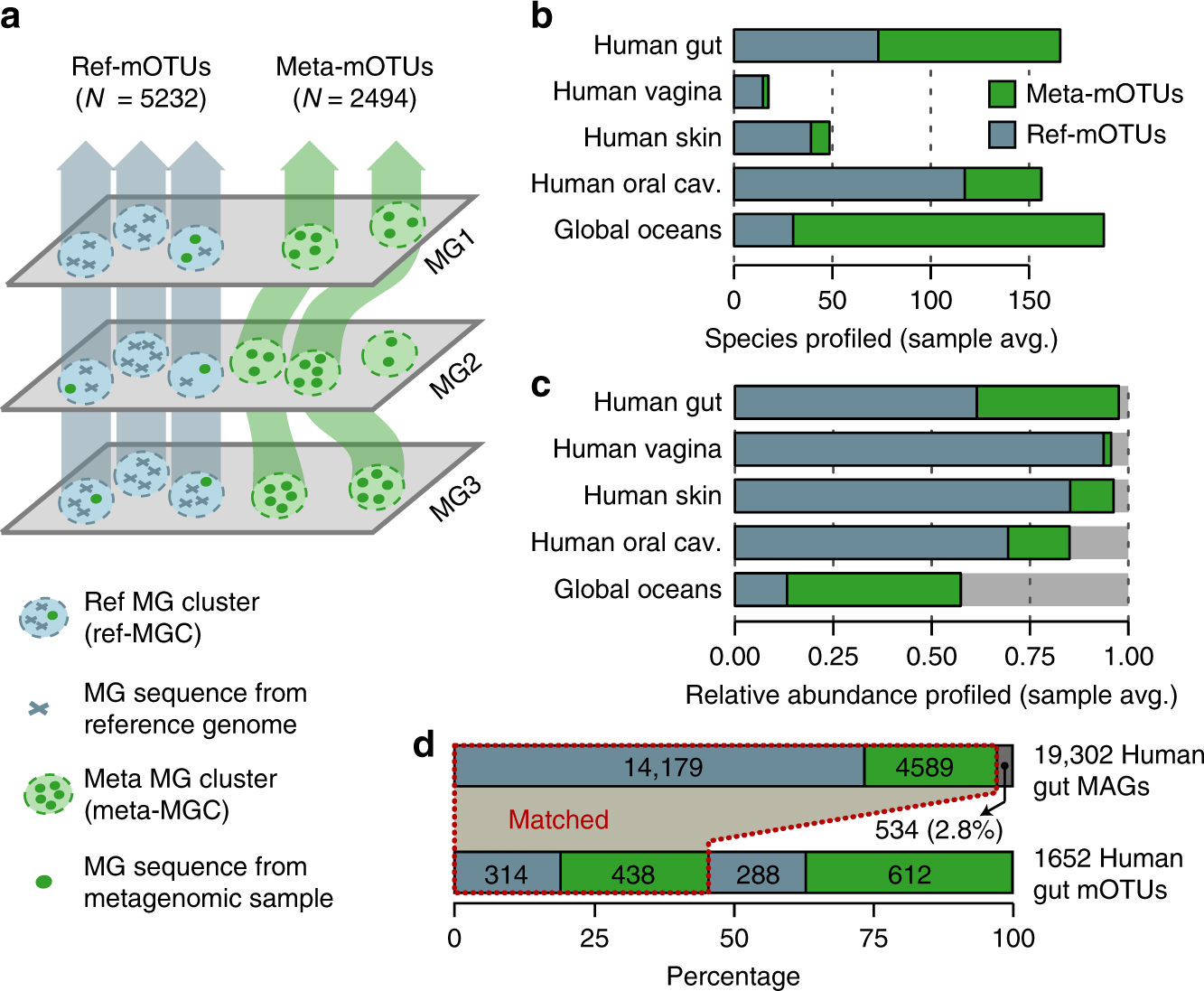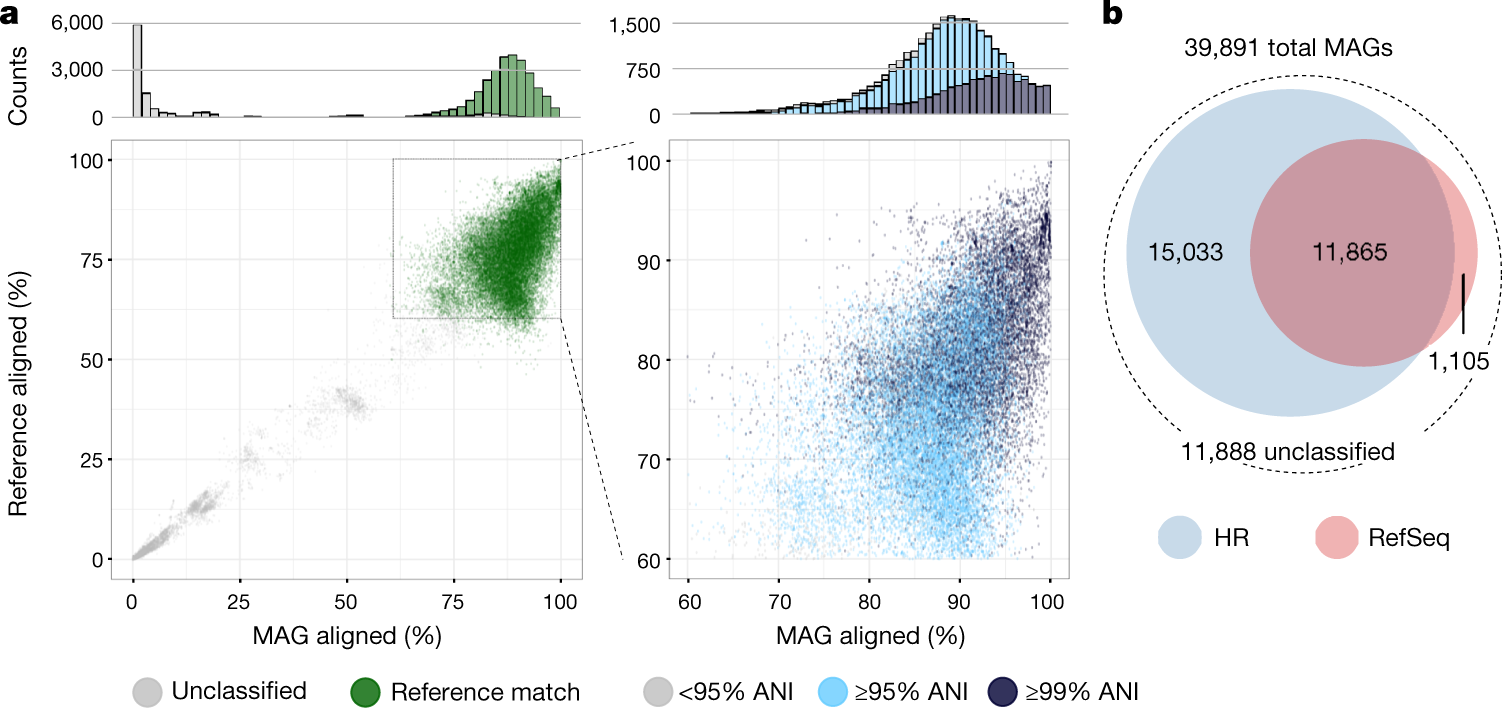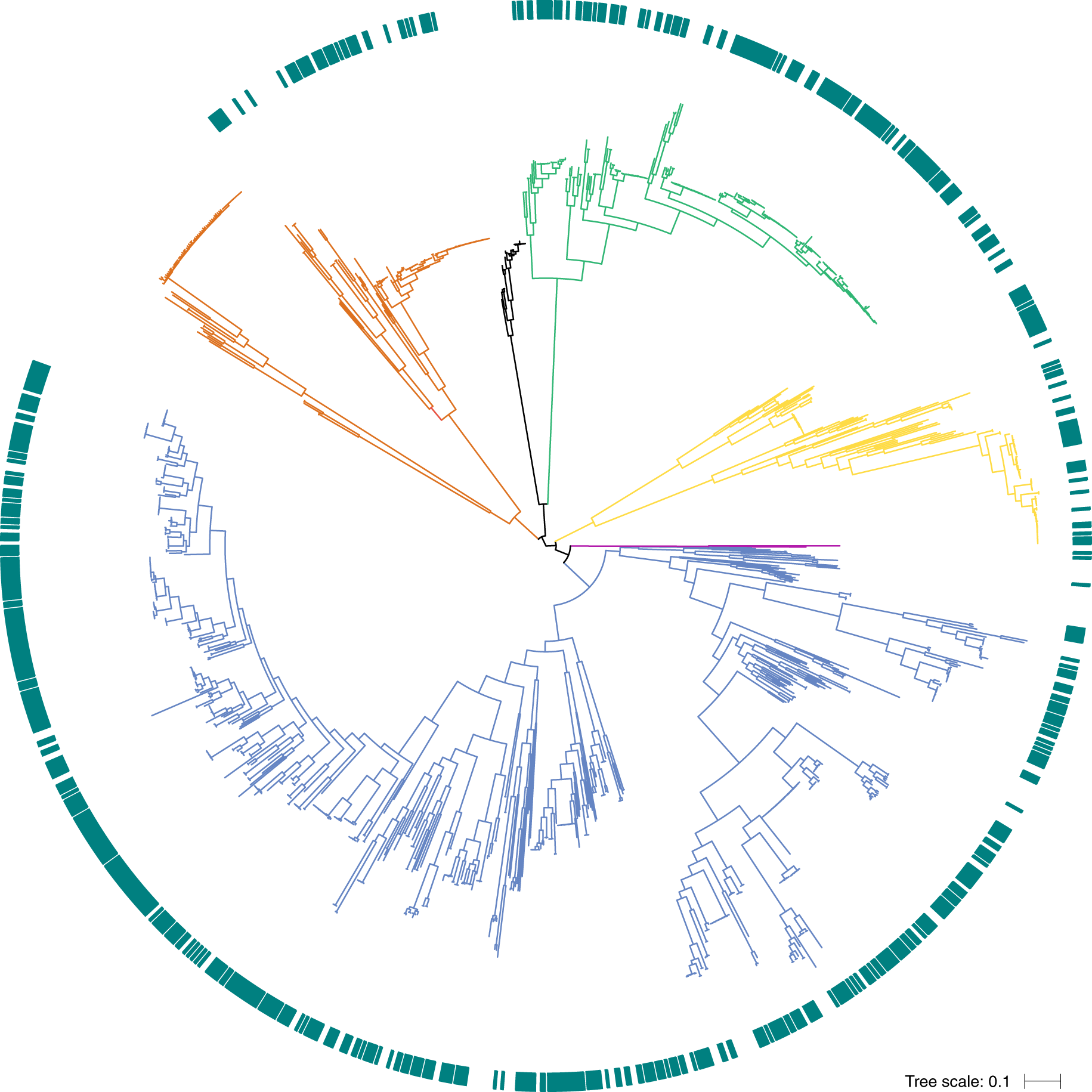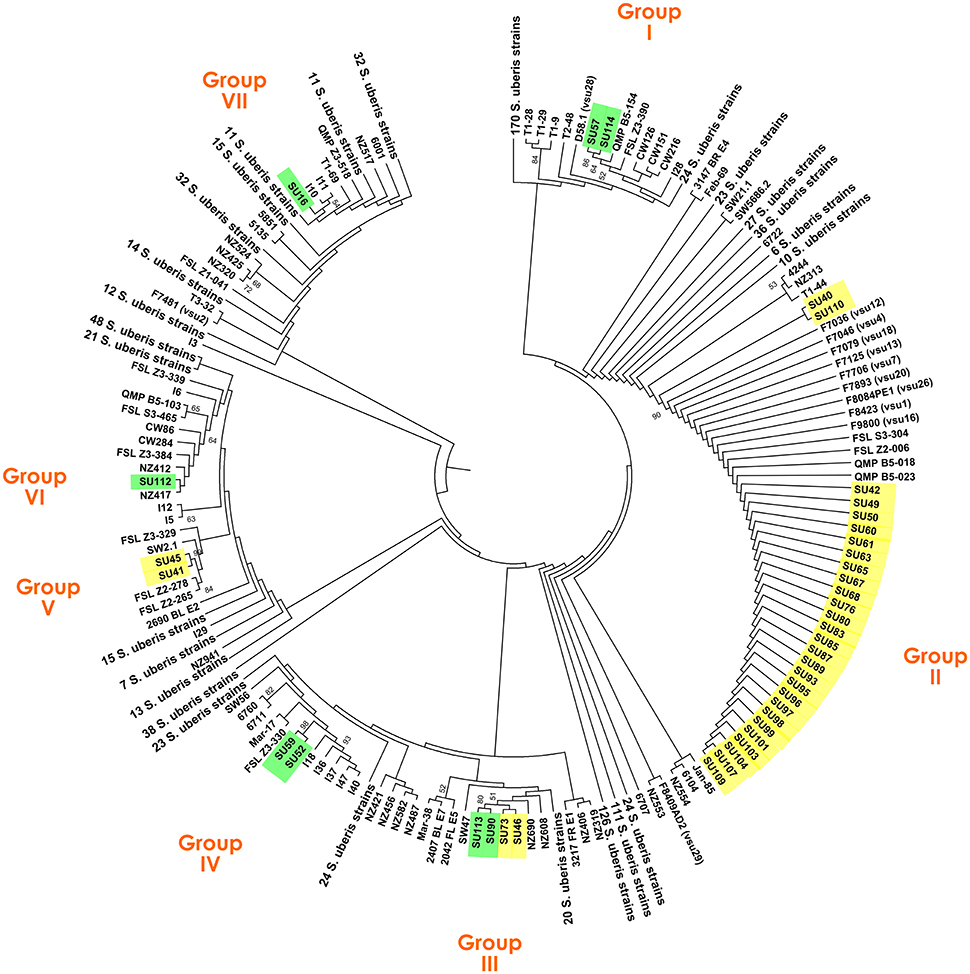Research
Our intestinal tract is colonized by a vast diversity of microbes that make up what is known as the human gut microbiome. With the advent of high-throughput DNA sequencing, the study of the human gut microbiome has emerged as a new frontier of biomedical research. Notably, a strong link between the human gut microbiome composition and various aspects of human health is being increasingly recognized. However, thousands of bacterial species (Almeida et al. Nature 2019 and Almeida et al. Nat. Biotechnol. 2021) and viruses (Camarillo-Guerrero et al. Cell 2021) in the human gut microbiome are largely unknown, as they remain difficult to culture and experimentally characterize in the lab. This technical limitation represents a major hurdle to understanding the biological mechanisms and beneficial role of the gut microbiome in host health.
Our research group develops and applies large-scale, high-resolution metagenomic and machine learning approaches to understand the biological role of hidden gut microbes across multiple kingdoms (including bacteria, viruses and archaea) and explore their impact on human health. Some of our key questions are:
- How does the gut microbiome influence pathogen colonization and evolution?
- What is the clinical relevance of the uncultured microbiome?
- How does the gut microbiome affect ageing and neurodegeneration?
- Can viruses and bacteriophages be used as biomarkers of health and disease?
- How does the multi-kingdom microbiome differ across human body sites?
By providing an integrated view of the physiology and functions of the commensal microbiome, we seek to improve our understanding of their role in human health and open new avenues to develop innovative therapeutic applications.

